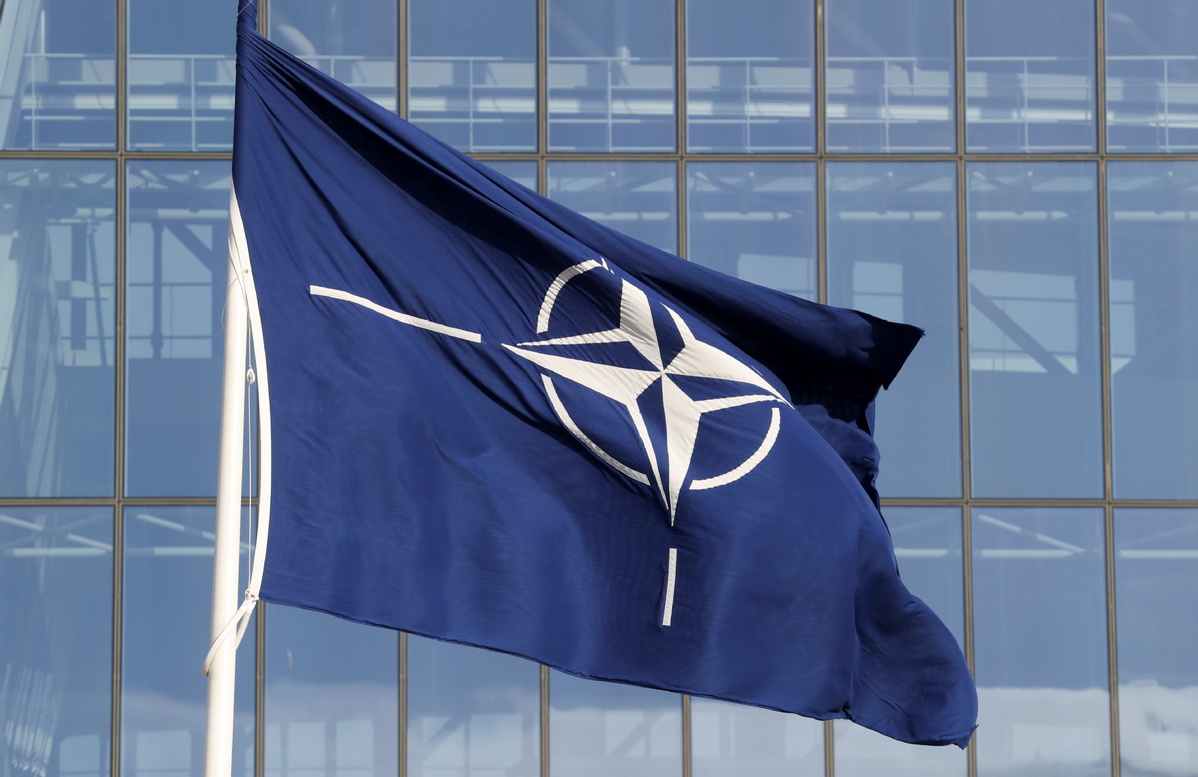NATO unity faces test over cluster munitions
China Daily | Updated: 2023-07-11 06:57

China urges dialogue as nations oppose 'irresponsible' weapons plan for Ukraine
As the Russia-Ukraine conflict continues with no end in sight, NATO's much-celebrated unity faces fresh strains when leaders gather for their annual summit this week in Vilnius, Lithuania.
It comes days after the United States decided to send cluster bombs — banned by more than 120 countries — to Ukraine. The munitions have spurred opposition around the globe and have been questioned by many US lawmakers, citing the danger they pose to civilians.
The administration of US President Joe Biden said on Friday it would supply Kyiv with the bombs as part of a new $800 million security package that brings total US military aid to Ukraine to more than $40 billion since the conflict began.
China's Foreign Ministry spokeswoman Mao Ning said on Monday that China has noted the US decision has raised global attention, and quite a few countries have voiced their opposition.
Irresponsible transfer of cluster bombs can easily cause humanitarian issues, Mao said, stressing the need to strike a balance between humanitarian concerns and legitimate military and security needs, and to stay cautious and restrained over the transfer.
"China has always believed that dialogue and negotiations are the only way out for the Ukraine crisis. Relevant parties should not make the crisis worse by fueling the fire and escalating tensions," Mao said.
Russia's Foreign Ministry said on Saturday that Washington's decision is an "act of desperation" that will, in no way, affect Moscow's special military operation.
Calling it "another miracle weapon", ministry spokeswoman Maria Zakharova said in a statement that Washington and Kyiv are counting on it without considering its grave consequences.
Biden arrived in Britain, where he met with King Charles III and Prime Minister Rishi Sunak on Monday.
Sunak has not directly criticized Biden, but on Saturday he said the United Kingdom was one of 123 countries that have signed the Convention on Cluster Munitions, an international treaty that bans the production or use of these weapons.
Other US allies have gone further. NATO partner nation New Zealand said on Sunday the munitions could cause "huge damage to innocent people". Over two-thirds of NATO members have banned the weapon because it has a track record of causing huge civilian casualties.
Disapproval from allies
Canada said on Saturday it is against the use of cluster munitions, reiterating its commitment to the treaty. "We do not support the use of cluster munitions and are committed to putting an end to the effects cluster munitions have on civilians — particularly children," the Canadian government said in a statement.
Other allies, Germany, Italy and Spain, and the United Nations have all expressed their opposition to the US sending cluster munitions to Ukraine.
In Washington, Democratic Representative Barbara Lee and Democratic Senator Tim Kaine expressed concerns over the shipment of the controversial weapons.
"Cluster bombs should never be used. That's crossing a line," Lee told CNN, adding the US "would risk losing our moral leadership".
The main part of Biden's Europe trip will be the Western summit on Tuesday and Wednesday, during which the Ukraine crisis will be the priority.
Despite Ukrainian President Volodymyr Zelensky voicing hope for the "best possible result" as he is pressing for his country's admission into the military alliance, Biden said in an interview aired on Sunday with CNN that this cannot happen until the conflict is over. Bringing Ukraine in now would mean NATO is at war with Russia, Biden said.
Cluster munitions typically release large numbers of smaller bomblets that can kill indiscriminately over a wide area. Those that fail to explode pose a danger for decades after a conflict ends.
Cambodia underwent pain from US cluster munitions dropped in the Southeast Asian country half a century ago, the country's Prime Minister Samdech Techo Hun Sen said on Sunday.
"It will be the worst danger for the Ukrainians for decades or even centuries if those cluster bombs are used," Hun Sen said in a statement.
According to Yale University, between 1965 and 1973, the US dropped some 230,516 bombs on 113,716 sites in Cambodia.
Ren Qi in Moscow, Heng Weili in New York, Wang Qingyun in Beijing, agencies and Xinhua contributed to this story.
























